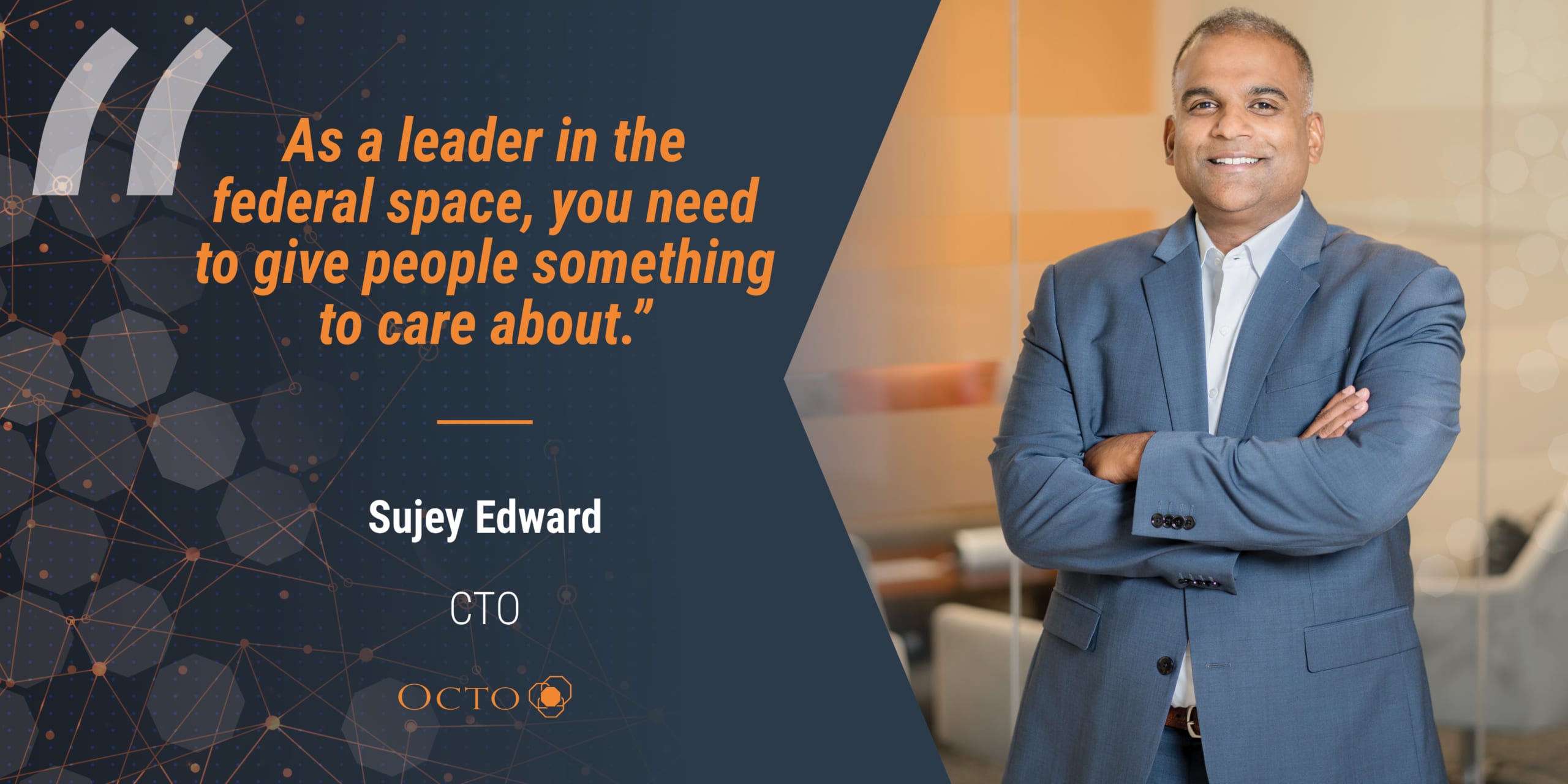
By Sujey Edward, Chief Technology Officer
Dear Federal CIO,
I know Silicon Valley would have you believe organizational culture is about free gourmet breakfasts, amazing cold brew coffee, on-site rock climbing, and napping pods to recover from rough meetings, but if you believe that, you’re in the wrong head space. That’s not what culture is. Those things are benefits and perks – the last thing taxpayers want us spending their money on. The definition of culture according to Merriam-Webster is “the set of shared attitudes, values, goals, and practices that characterizes an institution or organization.” For we who are working in the public space, real culture is about mission and the things we do to fulfill that mission.
Mission makes GovCon culture
There isn’t a mission in the Federal Government that isn’t important. Even the smallest agency has been charged with critical tasks that matter. And for the right person, that makes the difference. When employees focus on the mission, they are vested in something bigger than themselves (and most certainly bigger than a ping-pong table).
For too long, public service and support contractors have tried to recruit workers with just salary and perks. That, however, will lead to technologists leaving for larger salaries in the private sector. However, for technologists who are passionate about a mission and want to make a difference, the federal world is the perfect place. Just think about a few missions we serve in our space: exploiting technology to expedite cancer research, developing intelligence systems that safeguard our warfighters, using AI to develop software that predicts drug interactions, and so many more examples. As a federal CIO you want the employees who are moved by a cause greater than self. You don’t want the ones that can be “bought,” the ones who ask, “What’s in it for me?” You need employees who ask, “How can I make a difference?” That question is where real culture comes from.
Commercial companies like the ones found in the Valley don’t have the missions we have. They have splashy benefits and interesting perks, but they don’t have our sense of purpose. When Netflix goes down, it’s a bad day. When federal systems go down, tax refunds are not delivered, food isn’t inspected, and lives are at stake. In commercial organizations the technology being built is far removed from the meaningful mission. Those engineers have an important role to play with the technology, but they aren’t solving real problems like we do in intelligence, cancer research, Social Security benefits administration, and other areas that have a direct impact on the well-being of the citizens of our nation. If serious technologists want to and know they can make a difference and address these challenges, they’ll want to work with you and contribute to your mission-centric culture. And that, in turn, will make your culture even stronger.
Autonomy and mastery make GovCon culture
GovCon relies on knowledge workers, people who want to use their minds while earning a competitive wage. Studies show once basic wants and needs are provided for a knowledge worker, it’s the culture that encourages an employee to stay or leave an organization. That’s where autonomy and mastery come in.
Talented technologists are natural innovators who require the freedom to discover and develop. They need autonomy to explore, fail, and succeed. These knowledge workers don’t want people telling them how to do their work. They want to know what problem the organization is trying to solve. If they are handcuffed, they won’t be able to come up with the best solution. Challenge a technologist with a problem, give them parameters in which they can operate, and let them leverage their skills and creativity to do their jobs. They will build you amazing things.
Expert technologists also crave mastery. Technologists who are told a problem is impossible to overcome will come running to try, especially if it’s tied to a mission they care about. Give them the space to make it happen, and they’ll do remarkable work. In the process, they’ll strengthen organizational culture and attract others.
As a leader in federal space, you need to give people something to care about. You need to give them a purpose. You need to offer staff freedom and flexibility to exercise their minds as they solve critical problems. Give them a meaningful culture based on a mission larger than self and the autonomy and safety to experiment, and they will come up with the solutions our nation relies on.


